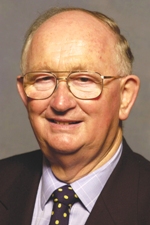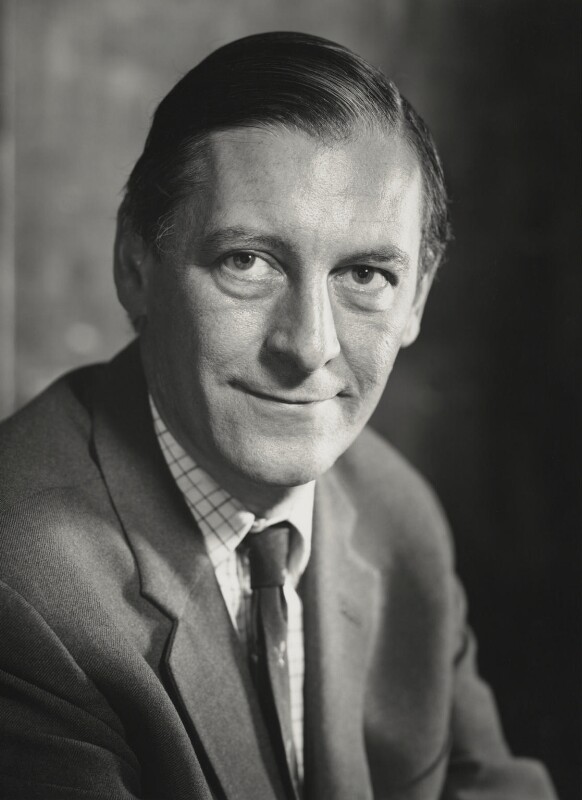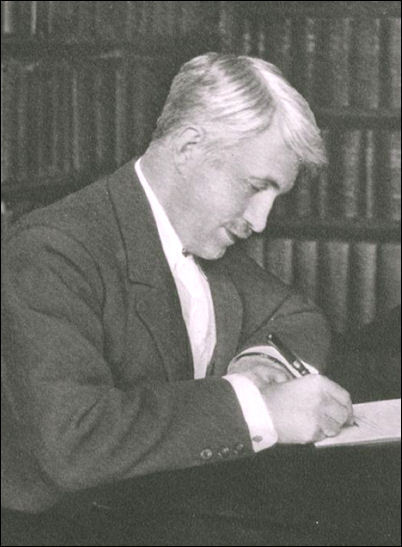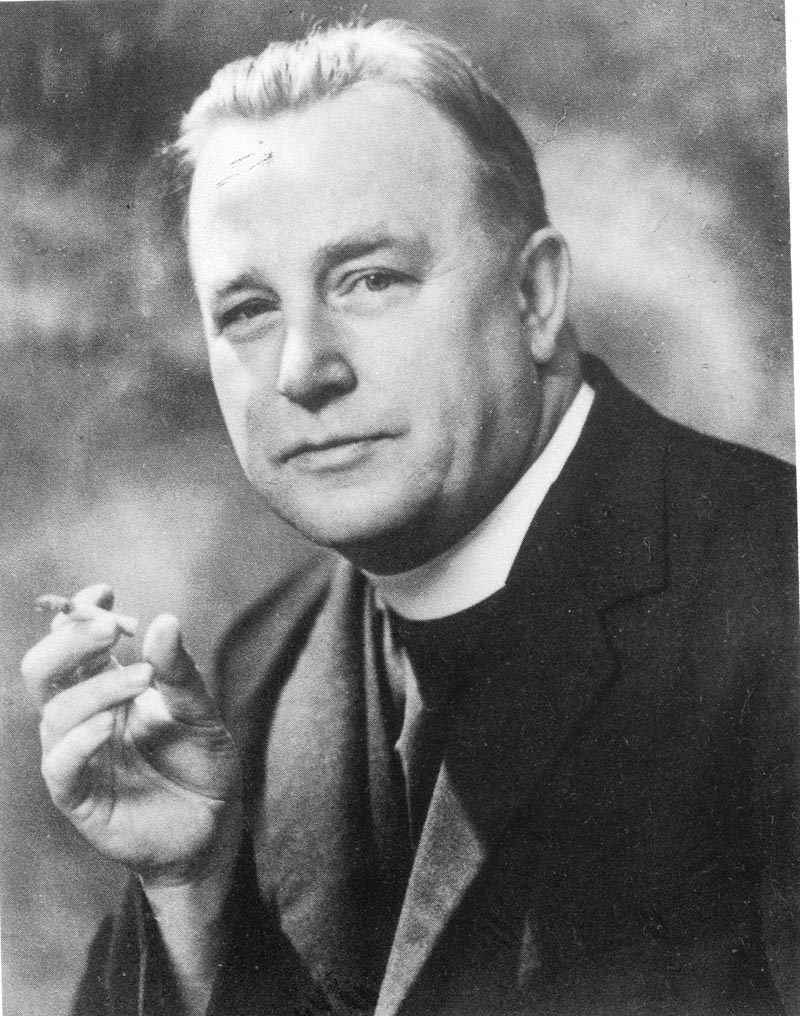An appreciation written for the Journal of Liberal History
by Michael Meadowcroft

Few Liberal Democrat members today are aware how tenuous was the Liberal party's hold on electoral survival in the early 1950s and how indebted we are to Liberals such as Richard Moore, who has died aged 88. At the 1951 general election there were only 109 candidates, and 110 in 1955. At both elections the party returned just six MPs, five of whom had no Conservative opponent. It was the existence of a core of key individuals whose deep attachment to Liberalism, and whose awareness of its fundamental difference from both conservatism and to socialism, fuelled their determination to maintain an independent party and to continue to fight elections.
Though a number of this mighty handful of Liberals were survivors of the golden age of Liberalism, there were some young activists, including Richard. Born in 1931 he fought his first election in 1955 at the age of 24. In total he contested eight parliamentary elections between 1955 and October 19741, plus the 1984 European Parliament election in Somerset and Dorset West. Remarkably for the time he lost his deposit just once and this in unusual circumstances. Being deeply concerned at the increasing polarisation of Northern Ireland he believed it was important for the Liberal party to make a non-sectarian stance, and he contested the North Antrim constituency in 1966. Then, when in 1970 the Reverend Ian Paisley was nominated as a more extreme "Protestant Unionist" candidate, Richard regarded this as a dangerous and highly illiberal development and told the Liberal party national executive committee that it was vitally important that a Liberal candidate challenged him. There was a brief silence whereupon Richard added that, if no-one else was prepared to stand, he would do so himself. He packed a bag and went directly to Northern Ireland. He made powerful speeches condemning the bigotry of Paisley and his party - a stance which put him in physical danger from Paisley supporters. It was inevitably a quixotic fight and Paisley was duly returned with Richard fifth - and a lost deposit.
Richard was the son of a Baronet and had a somewhat torrid early education. However, he won an Exhibition to Trinity College, Cambridge in 1949, where he became President of the Union and anchored the Liberal Club. He joined the Liberal party in 1951 and went to his first Liberal Assembly in 1953, thereafter attending every year, including latterly Liberal Democrat conferences, until 2017. It is said that it was the existence of Jewish refugees from Hitler in the family home before the war that instilled a young awareness of the consequences of totalitarianism which imbued all his politics. It also gave him an affection for the state of Israel which remained with him, supporting it even when the idealistic principles that underpinned its origins were eroded by later more right-wing governments.
A modest legacy enabled Richard to take on a succession of relatively poorly paid jobs within the Liberal family. Soon after graduation he joined the Liberal daily, the News Chronicle, as a leader writer. When that folded in October 1960 he became secretary to the Liberal Peers and, later, his internationalism found expression in becoming adviser to the Liberal Group in the European Parliament2, in between two terms as Secretary General of Liberal International. His key role, however, was as Political Secretary and Speech Writer to Jeremy Thorpe on his election as Liberal party leader in 1967, a post he held for seven years. He was Thorpe's key aide throughout most of the turbulent years of the Norman Scott affair but he resolutely refused to comment on Thorpe's behaviour apart from the understatement that, "he was not very wise in his choice of friends." Even after Thorpe's death, when, over a recent lunch at the National Liberal Club, I gently tackled him about his papers from the Thorpe era he professed to have very few items still in his possession. Richard's time with Thorpe began at the time of the Young Liberals' "Red Guard" period when they were a thorn in the flesh of the party establishment; one of the first speeches he drafted was for Thorpe to denounce them as "Marxists." It was not a particularly diplomatic position for a party leader to take and I played a minor role in conciliating between the two sides. The episode led to the appointment of Stephen Terrell QC as chair of a commission to look into the situation. Inevitably its outcome was inconclusive, with majority and minority reports supporting the different sides.
Richard was a brilliant platform performer with some of the phrases from his perorations staying in the memory. I recall him enlivening the audience in London in the 1960s by telling them that the "Conservative party recently took over offices in Victoria Street for its research department. The name of the previous occupants is still on the office door: 'Activated Sludge Limited.' I can think of no better name for the Conservative party." Curiously there is only one publication extant under his own name, "The Liberals in Europe,"3 and his main literary endeavours appeared under others' names.
His dedication to the Liberal cause, combined with his oratory and his consistent presence at many party meetings, ensured his popularity but a number of his political positions increasingly estranged him from the evolving radicalism of the party. His passionate internationalism and the consequent support for European unity was certainly popular with Liberals, as was his opposition to strict immigration controls, but his visceral hostility to authoritarian regimes led him to oppose the Liberals' acceptance of some rapprochement with countries behind the Iron Curtain. In 1961 he prepared a policy statement for Liberal International, "Winning the Cold War", arguing that the ability to attack the Communist regimes was necessary and proposed that there should be a set period of conscription in all NATO countries. In the same year, when the Liberal party conference voted for de facto recognition of the East German regime, Richard told delegates that they were failing to show solidarity with oppressed people. The fraternal delegation from the party's German sister party, the Free Democrats, duly walked out and it fell to Richard to fly to Bonn to assuage them.
Much later, in 2003, Richard's consistency on opposing authoritarian regimes led him to disagree publicly with the Liberal Democrat MPs' united opposition to the invasion of Iraq. In essence Richard's political position had hardly changed throughout his career but, whereas he was on the radical wing of the party in his early days, the party had evolved into a generally more radical movement. None of his disagreements with the party ever troubled his loyalty to Liberalism and neither did party members ever doubt his commitment. Ironically it was a former Conservative Cabinet Minister and old friend, Sir Oliver Letwin, who summed up Richard best: Somehow the whole tolerant, civilised liberal disposition that is the greatest glory of our country seemed to have been distilled into its purest form and infused into him at birth."
He married Ann Miles in 1955 and she is a dedicated and active Liberal in her own right4 and was a Liberal and then Liberal Councillor on East Sussex County Council and Rother District Council for forty years. They had two sons, Charles, sometime editor of the "Daily Telegraph" and official biographer of Margaret Thatcher, and Rowan, and one daughter, Charlotte, both of the latter are also writers.
1 Tavistock, 1995 and 1959; Cambridgeshire, 1961 (by-election) and 1964; North Antrim, 1966 and 1970; and North Norfolk, February and October 1974.
2 Officially called "The Liberal and Democratic Group".
3 Unservile State Paper 20, Liberal Publication Department, 1974; {with detailed appendix by Christine Morgan).
4 See her entry in "Why I am a Liberal Democrat", ed Duncan Brack, Liberal Democrat Publications, 1996.
 Those who came across Joe Kitchen only as one of the Labour City Councillors for Leeds' Middleton ward without knowing anything of his background would be surprised at his history.
Those who came across Joe Kitchen only as one of the Labour City Councillors for Leeds' Middleton ward without knowing anything of his background would be surprised at his history. For fifty years Graham Kirkland, together with his GP wife, Joan, served the medical needs of his Otley patients and for over forty years he was a Liberal, and later a Liberal Democrat, Councillor on the Otley Town Council and on the Leeds City Council. In 1998 he became the first Liberal Lord Mayor of Leeds since 1942. In recognition of his long civic service, in 2013 he was made a Honorary Alderman of the City.
For fifty years Graham Kirkland, together with his GP wife, Joan, served the medical needs of his Otley patients and for over forty years he was a Liberal, and later a Liberal Democrat, Councillor on the Otley Town Council and on the Leeds City Council. In 1998 he became the first Liberal Lord Mayor of Leeds since 1942. In recognition of his long civic service, in 2013 he was made a Honorary Alderman of the City. Born 28 November 1903, near Tonbridge, Kent; the only child of Horace Bradlaugh Lakeman (1874-1962), an excise officer, and Evereld Simpson (1867-1950); died 7 January 1995 at her home in Tunbridge Wells. She remained unmarried.
Born 28 November 1903, near Tonbridge, Kent; the only child of Horace Bradlaugh Lakeman (1874-1962), an excise officer, and Evereld Simpson (1867-1950); died 7 January 1995 at her home in Tunbridge Wells. She remained unmarried.



 David Morrish was one of the very best of us. He had everything - an instinctive and innate Liberalism, considerable intelligence, great debating skills, always with a ready anecdote in his attractive Devonian burr, an immediate charisma and a political integrity and loyalty which meant that he had many opponents but no enemies. He was one of that band of Liberals denied a role in national politics by an electoral system that excludes all but a handful of Liberals from office. That he chose not to seek party office beyond the Devon and Cornwall Region was a loss to the Liberal cause. His death in February at the age of 86 brings a sense of what might have been.
David Morrish was one of the very best of us. He had everything - an instinctive and innate Liberalism, considerable intelligence, great debating skills, always with a ready anecdote in his attractive Devonian burr, an immediate charisma and a political integrity and loyalty which meant that he had many opponents but no enemies. He was one of that band of Liberals denied a role in national politics by an electoral system that excludes all but a handful of Liberals from office. That he chose not to seek party office beyond the Devon and Cornwall Region was a loss to the Liberal cause. His death in February at the age of 86 brings a sense of what might have been.

